Dara Kell and Christopher Nizza’s award-winning documentary “Dear Mandela” follows three courageous young leaders from the slums of Durban as they resist forced eviction from their homes, and take their case to the country’s highest court, the Constitutional Court. The film was supported by Bertha Foundation and was the centerpiece of an innovative 3-year audience engagement campaign that brought together storytellers, activists and lawyers in South Africa, Brazil, India, Haiti and Nigeria. The filmmakers partnered with lawyers at the Socio-Economic Rights Institute of South Africa (SERI), a non-profit organization (and partner of the Bertha Justice Initiative) providing professional and dedicated socio-economic rights assistance to individuals, communities and social movements in South Africa. Their partnership continues with a new documentary web series (also supported by Bertha Foundation) called “Fighting for a Living” about law and social justice in South Africa.
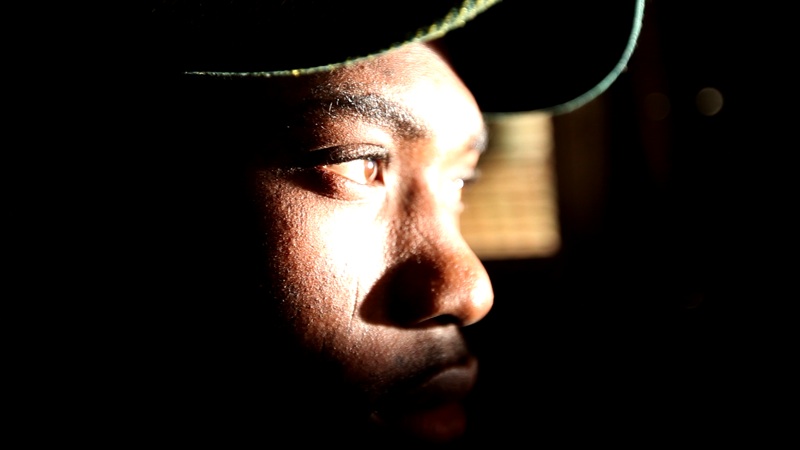
I recently spent a few invigorating days at the Bertha Retreat, a serene space for reflection and work at the foothills of the majestic Drakenstein Mountains in Cape Town, South Africa. I got to share my film “Dear Mandela” with a dynamic group of young movement lawyers from around the world. We spoke about how filmmakers, activists and lawyers can work together to enrich each others’ work and bring to a wider audience the struggles of poor communities who are using the law to reclaim their human rights.
I’m part of a growing, global tribe of documentarians who see storytelling as a powerful tool for social change. Our films aim to inspire audiences to take action once they leave the movie theatre, offer fresh perspectives on intractable social problems, or simply provide audiences with a joyful, life-affirming experience. But our films, no matter how robust the impact campaigns we design, no matter how many people see them, cannot change the world on their own. We need activists, lawyers, academics, journalists, poets, high school teachers, nurses. Films are not social movements but they can strengthen social movements. Stories allow us to imagine different ways of organizing the world. They allow us to see the humanity in those different from us. For lawyers, they can breathe life into court cases that have great significance but are often hard for the public to understand.
In 2011, Christopher Nizza and I worked closely with the members of South Africa’s shack dwellers movement, Abahlali baseMjondolo (Zulu for “People of the Shacks”) during the making of “Dear Mandela”. The film follows three courageous young people who live in the vast shantytowns of Durban. Together with their communities, they resist government-led mass evictions from their homes and take their case to the highest court in the land. A strong social movement rooted in the struggles of ordinary poor and working people, combined with creative use of the law, realized an important victory – stopping forced evictions for thousands of people living in shantytowns. The film follows this victory and explores themes of leadership, agency of the poor, democracy and dignity. During the making of the film, both the activists and the lawyers reviewed rough cuts and offered feedback that we incorporated into the final film, making it something they felt they could stand behind as we rolled the film out into the world.
We screened “Dear Mandela” at film festivals and movie theatres in more than 40 countries, on television across Europe and the African continent, and in universities from Stanford University and Harvard in the United States to Wits Law School in South Africa, where it is required viewing on the first day of Property Law. But we knew that the film would have its greatest impact in slums where poor people were being forced out of their homes, either by unjust government policies, corrupt local officials or mega-sporting events like the World Cup or the Olympic Games. And so together with the activists – the young leaders of Abahlali – and the lawyers at the Socio-Economic Rights Institute (also a Bertha Foundation grantee) we designed an ambitious audience engagement campaign centered around “Dear Mandela”. We had three goals:
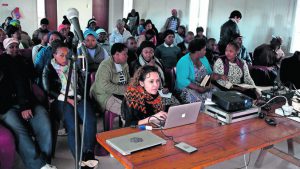
Over the past 3 years, we conducted strategic screening tours to informal settlements across South Africa, slums in India and Nigeria, displacement camps in Haiti, and favelas in Brazil. We focused on places where evictions were either imminent or had already happened, and where there was already some form of activism taking place. In each country we screened, we partnered with:
We launched the campaign in South Africa with a very special screening at the Constitutional Court, with opening remarks given by the Deputy Chief Justice Dikgang Moseneke. He said, “I accepted this invitation in order to salute those legal and social activists who, together with Abahlali, have continued to prick our conscience about the plight of many landless and many homeless people of our country.”
Friday, October 9, 2015 will forever remain fresh in the minds of slum dwellers of the famous Makoko as their hope of keeping their abodes as against recent moves by government to relocate them got a boost. The inhabitants of the waterfront environment were treated to a special screening of the award winning South African documentary, “Dear Mandela.”
After each screening, South African grassroots leaders and Abahlali baseMjondolo members TJ Ngongoma and Nandipha Chala led a rousing discussion with the audience to bring the Nigerian situation into an African, and global, context to inspire young people to become leaders, and to share successful strategies for engaging with local government.
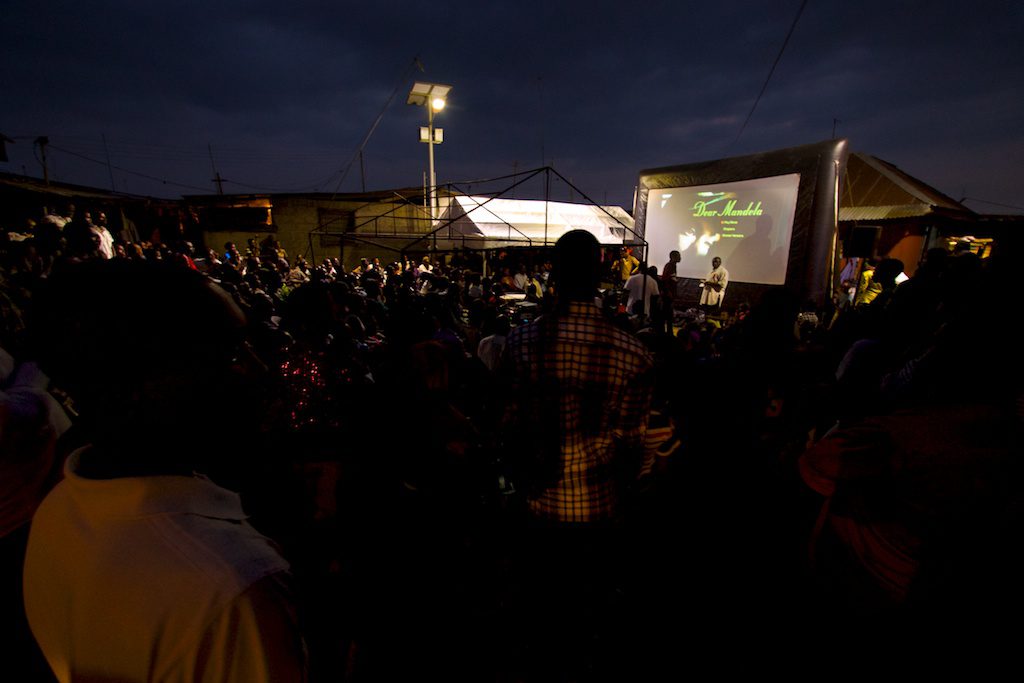
One of our partners, the Center for Constitutional Rights (a Bertha Justice Initiative partner organization), felt that their work both with lawyers and with activists in Haiti had reached an impasse. Mass evictions and internal divisions had taken a toll on grassroots organizations, and many people reported feeling despondent about the possibilities of change. Together, we decided to take “Dear Mandela” to Haiti. We partnered with actors and filmmakers at the Ciné Institute to create a Haitian Creole version of the film. We organized 7 free screenings in and around the displacement camps of Haiti, and with lawyers and activists at the Bureau des Avocats Internationaux (BAI, a Bertha Justice Initiative partner organization). Over 2,000 people attended the screening tour. And they continue to screen “Dear Mandela” and to talk about how they can unite their communities in the struggle to resist evictions. After a screening at BAI, Sophony, an activist from the Haitian women’s group KOFAVIV, remarked, “What is really inspiring to me as a woman activist is that you use the law in your struggle. [Poor people] don’t realize they can use the law in their favor.”
For South African communities, we created toolkits, with 5 different guides and various versions of the film, and spent a month traveling across South Africa screening the film and conducting targeted workshops with communities who were facing forced evictions or struggling to engage effectively with local government.
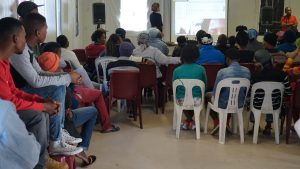
The lawyers designed the toolkits, we created special short versions of “Dear Mandela” to screen during workshops, and the activists, led by Abahlali’s founding president S’bu Zikode, led afternoon workshops with youth about how to mobilize their communities and strengthen their movements. We called it the “Art of Organizing”.
In the past 3 years, we reached, face-to-face, more than 30,000 people on 4 continents (and many times that number with online visibility and press coverage). The feedback from audience members confirmed our belief that this film could be used to educate and inspire. One young person in India said, “’Dear Mandela’ inspired me and my community. It taught me that communities should not depend only on one leader, but rather everyone should raise their voices, know their rights and only then can the struggle be strengthened.”
We have hundreds of responses like that. We did not ask people to sign petitions; we asked them to enter into relationships with each other beyond the screening, to get to know the law and to demand access to legal strategies while continuing to strengthen the base of their organizations, and to feel empowered and inspired. Making a film puts all those involved – the filmmakers, the participants, those supporting the struggle in myriad ways – into a relationship with each other. And while the journey is unexpected, it’s often incredibly rewarding.
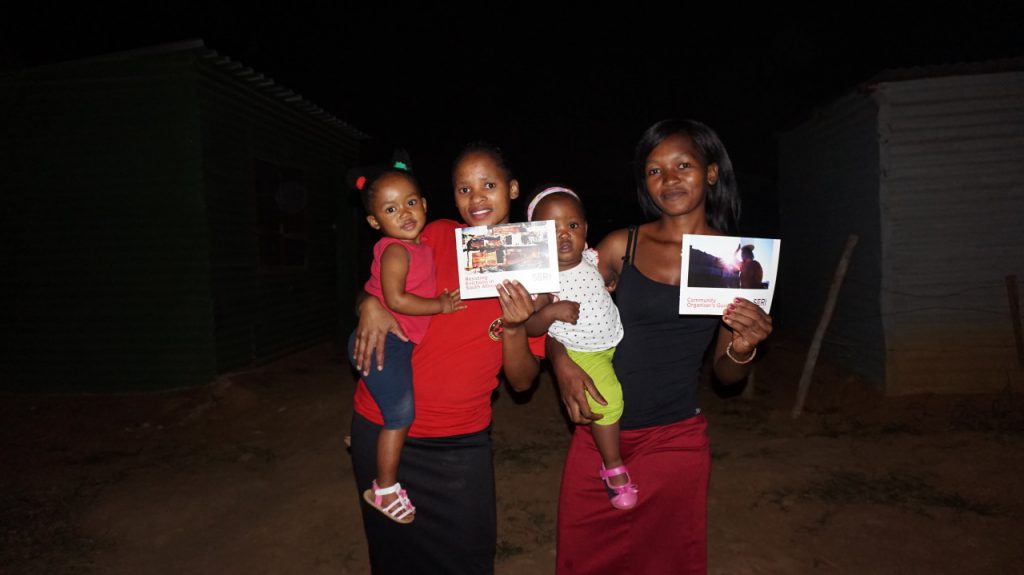
Ultimately though, the success of these kinds of endeavors depends on the power of the story, and the craft of the storyteller. As the Nigerian novelist Chinua Achebe once said, “It is only the story that saves our progeny from blundering like blind beggars into the spikes of the cactus fence. The story is our escort; without it, we are blind. Does the blind man own his escort? No. Neither do we the story; rather, it is the story that owns us.”

Dara Kell, Co-Director of Dear Mandela
Follow Dara on Twitter @darakell and the film @DearMandela
Article Tags: Documentary / Global Convening / Human Rights / movement lawyering / Social Impact Media / South Africa